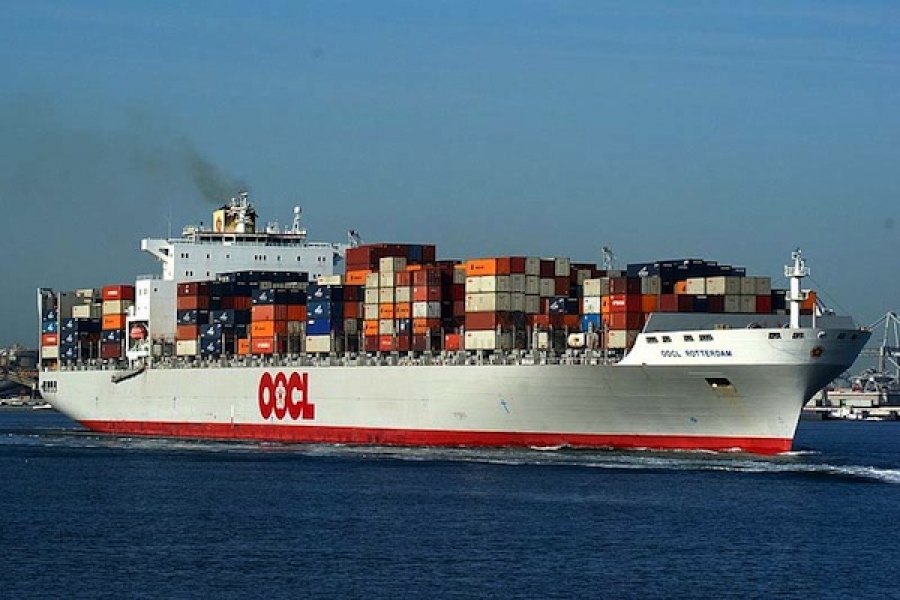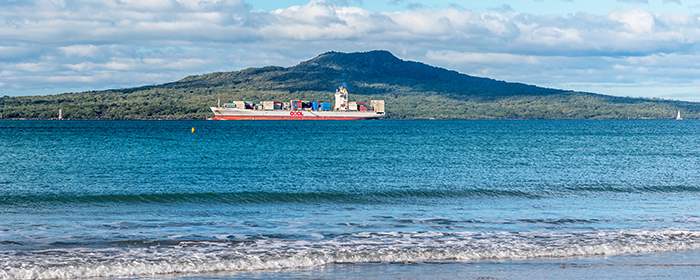
The eye watering $6.3 billion that Cosco Shipping Holdings and Shanghai International Port Group are paying for Orient Overseas (International) Ltd. is great news for shareholders of the Hong Kong-listed carrier, but shippers were not all that impressed.
“The soup is getting even thinner,” is how an Asia-Europe BCO described the takeover bid that was announced at the weekend. It is the latest acquisition in a wave of consolidation that has drastically reduced the number of global shipping companies and pushed them into three main alliances, limiting the choices of cargo shippers.

“There are too few options now, and if the carriers in the alliances get their act together, the shippers are in for a tough ride for the next couple of years,” the shipper told JOC.com.
Around 70 percent of world container trade will now be carried by just six container lines after a tumultuous year that changed the face of the industry. Hanjin Shipping collapsed in September last year and was followed by a series of mergers and acquisitions as carriers searched for profitability through scale and lower unit costs. Cosco merged with China’s second largest carrier, China Shipping; CMA CGM bought Neptune Orient Lines and its APL liner subsidiary; Maersk Line bought Hamburg Sud; Hapag-Lloyd merged with UASC, and the three Japanese carriers, MOL, “K” Line and NYK, formed the One Network Express that merges their container shipping divisions.
The combined Cosco Shipping, a subsidiary of Cosco Shipping Holdings, and OOCL will have a fleet of more than 400 ships, totaling a capacity of 2.9 million TEU including orderbook. Together, Cosco and OOCL would operate the third-largest mega-ship fleet and be the second-largest mover of US containerized goods, according to an analysis of PIERS data and the IHS Markit orderbook.
Cosco has pledged to continue the OOCL brand, something Maersk and CMA CGM did with their respective acquisitions, retaining Hamburg Sud and APL. But while the brand may hold some importance, keeping the teams in place is arguably an even more crucial area for shippers.
“As long as they do remain separate brands and teams, like CMA CGM and APL, then that shouldn’t be a problem. If, however, they do become as one, then I think that’s reducing our choice further,” said the supply chain director for a major European retailer.
“But there are already too few options left and it is certainly no longer a buyer’s market. I know consolidation is a way for carriers to address their profitability, but it does not do much for shippers.”
AlixPartners’ Lim Lian Hoon said shipper choices are being narrowed steadily in the march towards consolidation, but one of the more interesting implications of a Cosco-OOCL tie-up is that the Ocean Alliance will become much easier to align.
“It was four liners but now two of them are very much larger than Evergreen. Structurally it will resemble the 2M-plus HMM alliance,” he said. “So if both these carriers are aligned internally it lays the foundations for increasing the probability of liners curbing their individual market share ambitions. That in turn reduces the probability of rates falling rapidly.”
Under the deal, OOIL would keep its Hong Kong corporate headquarters and the independent share listing. It would also put off any headcount reductions at OOIL for at least 24 months, Cosco said in a statement. Cosco acknowledged the separate and distinct culture that has led OOCL to become of the industy’s best performing and highest regarded carriers in the eyes of BCOs, and clearly indicated that was an important part of the value it was acquiring.
“We respect OOIL’s management team and its expertise, not to mention its people, brand and culture,” said Wan Min, chairman of Cosco Shipping Holdings.
Hanjin’s demise and the subsequent consolidation forced a complete redrawing of the alliance structure that was reduced from four vessel sharing agreements to three — 2M-plus Hyundai Merchant Marine, THE Alliance and the Ocean Alliance. Cosco and OOCL are both members of the Ocean Alliance.
Shippers complain that alliances also limit their choices and add costs to their supply chains. An analysis of the networks by SeaIntel found a significant reduction in direct port-to-port combinations. “This will have a clear impact for shippers and forwarders, as less direct combinations will necessarily lead to more cargo needing to be transshipped,” the analyst concluded.
www.joc.com

